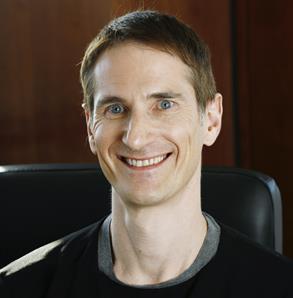Changing Cell Behavior Could Boost Biofuels, Medicine
 A computer scientist at Washington University in St. Louis has developed a way to coax cells to do natural things under unnatural circumstances, which could be useful for stem cell research, gene therapy and biofuel production.
A computer scientist at Washington University in St. Louis has developed a way to coax cells to do natural things under unnatural circumstances, which could be useful for stem cell research, gene therapy and biofuel production.
Michael Brent, the Henry Edwin Sever Professor of Engineering in the School of Engineering & Applied Science, has designed an algorithm, called NetSurgeon, that recommends genes to surgically remove from a cell’s genome to force it to perform a normal activity in
a different environment or circumstance. For example, ordinary baker’s yeast cells normally produce a lot of alcohol, a biofuel, when fed sugar extracted from the edible kernels of corn plants. NetSurgeon designed genetic surgeries that convinced the cells to make more alcohol when fed a type of sugar found in the inedible leaves and stalks.
The research is published in PNAS Early Edition Oct. 31.
 Michael Brent
Michael Brent
“Yeast have been engineered to make alcohol out of xylose, a type of sugar found in the woody parts of plants, but they don’t do it very well,” Brent said. “We think the problem is not that they can’t do it, but that they don’t want to. So we have to convince them by making them use the same set of genes they use when they’re fed sugar from corn kernels. We sometimes think about this as causing the yeast to ‘hallucinate’ that they are in a sugar they like to turn into alcohol.
“Ultimately, what we want to impact is the behavior of the cells and the ways they respond to things,” Brent said. “One of the ways they respond is by changing the mix of cellular parts they are making. We’re trying to engineer the cells to change the mix of parts to do something associated with desirable behaviors, like becoming a liver cell or producing a biofuel. We call this ‘transcriptome engineering,’ because it changes the control circuits in order to change the production of many parts at once, rather than focusing on one part at a time.”
Brent’s research group focuses transcriptional regulatory networks, the control circuits by which cells sense their situation and respond to it by changing how much protein is made from each gene. The key components of these networks are transcription factors, or proteins that turn genes on and off. NetSurgeon takes in the current production level from each gene and the goal level and suggests transcription factors to remove, by deleting the genes that encode them, in order to move production levels toward the goals.
 An engineer at Washington University in St. Louis developed an algorithm that suggests gene to remove from certain cells, such as yeast, to get them to perform a normal activity in a different environment or situation.
An engineer at Washington University in St. Louis developed an algorithm that suggests gene to remove from certain cells, such as yeast, to get them to perform a normal activity in a different environment or situation.
“If you have a stem cell and want it to be a liver cell, you want to cause it to turn its genes up and down to match the levels found in a liver cell,” Brent said.
While Brent’s lab has been studying the way yeast responds to excess sugar, Brent said this technique can be applied to any organism.
“Many of the same circuits exist in human cells and are even drug targets,” he said.
He has made it available as open source software at mblab.wustl.edu.
Funding for this research was provided by the National Institutes of Health (GM100452 and T32HG000045).
The School of Engineering & Applied Science at Washington University in St. Louis focuses intellectual efforts through a new convergence paradigm and builds on strengths, particularly as applied to medicine and health, energy and environment, entrepreneurship and security. With 88 tenured/tenure-track and 40 additional full-time faculty, 1,200 undergraduate students, 1,200 graduate students and 21,000 alumni, we are working to leverage our partnerships with academic and industry partners — across disciplines and across the world — to contribute to solving the greatest global challenges of the 21st century.
Media Contact: Erika Ebsworth-Goold
- Login to post comments